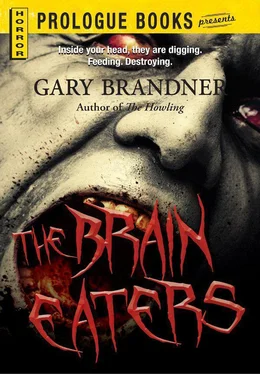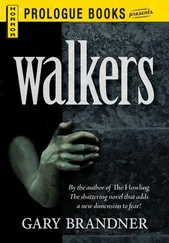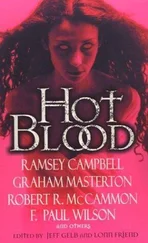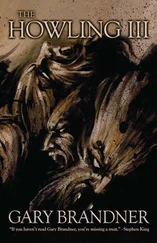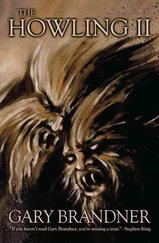“Any news?” Corey asked, making an effort to keep it impersonal.
“I thought your briefing of the media was finished for today.”
“I’m asking for myself,” Corey said.
“We are making progress, of a sort.”
Corey leaned forward.
“There has been no breakthrough,” Kitzmiller continued quickly. “We are approaching the problem from two directions. We must find a means of protection for those not yet afflicted and a cure for those whose blood already carries the parasites but who are not yet too ill to be helped.”
“How ill is too ill?” Corey asked.
“Dr. Everett, the brain specialist, feels that once the parasites have been carried by the bloodstream into the brain tissue and have begun their damage there, it is too late.”
“And it takes about a week from the time they enter the body for them to get to the brain?”
“That is no longer a valid assumption. Our reports show that as the cases have spread, the length of time for the parasites to reach the brain has decreased.”
“How long?” Corey’s mouth had dried up.
“Three, perhaps four, days.”
“Jesus. But you say there is some progress toward finding a cure?”
“I said we were making progress of a sort. The preventive approach must take precedence to preserve the health of those who are not yet infested.”
“That’s not fair to the people who have the brain eaters in their blood. They could still be saved.”
“Life, Mr. Macklin, is not fair. Now you must excuse me.”
Corey sat alone for several minutes in the cold office, then pulled himself out of the chair and went in search of Lou Zachry. He badly needed somebody to talk to.
Zachry’s office was empty. Corey walked to the entrance and looked out into the parking area. Zachry’s car was gone. Lightning sparked down through the slate-colored sky, and thunder crashed like cymbals.
Corey sat down heavily on an ornamental concrete bench in front of the Biotron entrance. The wind made him shiver, but he paid it no attention. He stared unseeing out toward the gate, his mood darker than the skies. A first, fat drop of rain hit the bench beside him.
• • •
Anton Kuryakin sat in the pickup truck in a farmer’s roadway where he had pulled off after his second pass by the gate to Biotron. Raslov and the KGB men were still there, parked across the road, waiting for him. Kuryakin knew they would park there indefinitely, watching the road, waiting to take him. Time was on their side.
Kuryakin made a decision. There could be no more delay. He shifted the pickup into reverse and backed out onto the highway, taking a small pleasure in his growing skill in operating the American vehicles. He pointed the machine back toward Biotron and hit the gas.
When he came to the end of the chain link fence, he began to pick up speed. There could be no stopping for explanations to the guards at the gate. Raslov and the others would be there too quickly, and one way or another they would surely prevent him from entering.
When he could see the gate and guard shack ahead on his right, Kuryakin pushed the accelerator pedal to the floor. He swung the truck to the far side of the road to allow himself a better angle for approaching the gate. There was no need for him to worry about oncoming cars; traffic along that road had dwindled to nothing.
Rain began to smack the windshield in fat, heavy drops. Kuryakin had no time to search for the wiper control; he needed all his concentration for the driving.
From the corner of his eye he saw movement behind the smoked glass of the parked limousine as the pickup roared past the spot where it was parked. Up ahead, the door of the guard shack opened, and a uniformed man stood looking out as Kuryakin yanked the wheel and swerved into a tire-screaming turn off the road and toward the gate.
He hit the heavy steel mesh of the gate with a jarring crash that threw him forward against the steering wheel. The breath was blasted from his lungs as the gate sagged inward and the truck came to a stop.
Kuryakin’s chest heaved as he struggled to pull in air. I’ve failed, he thought as the men surged out of the guard shack. In the rearview mirror he could see the limousine across the road start to move toward him.
He kept his foot on the accelerator. The rear wheels spun; the heavy air was acrid with burning rubber. The face of one of the guards appeared at the window. He was shouting something Kuryakin could not hear.
Simultaneously, with a blinding flash of lightning overhead, the gate gave way with a metallic crack . The spinning tires of the pickup bit suddenly into the wet asphalt, and the truck went skidding across the parking area, turning one complete revolution before Kuryakin could bring it to a stop.
Corey Macklin was the first to reach him as he climbed unsteadily down from the cab.
“I am Anton Kuryakin,” he gasped. “I must speak to Dr. Kitzmiller.”
Three men from the security force, weapons at the ready, ran through the rain toward the truck. The others were blocking the path of the limousine, which was trying to follow Kuryakin through the shattered gate.
Corey caught the Russian as he stumbled and helped him upright as Lieutenant Purdue, followed by two of his men, pounded up.
“We’ll take over now, Mr. Macklin,” said the security chief.
Corey stood his ground. “This is Anton Kuryakin. He’s here on official business.”
“I’ll see that he’s placed in protective custody,” said Purdue.
“Please, I must talk to Dr. Kitzmiller,” said the Russian. “For the sake of your country and its people, do not detain me.”
Viktor Raslov, escorted by two of the gate guards, hurried up. The KGB men were being kept in the limousine where it had stopped at the shattered gate.
“This man is a Soviet citizen,” Raslov said. “He is traveling on a diplomatic passport. You cannot hold him.”
“Wait a minute,” Corey said. “Nobody is holding anybody here.” He turned to Kuryakin. “What is your business with Dr. Kitzmiller?”
“It is confidential.”
Corey looked at Lieutenant Purdue, the security guards, and Viktor Raslov. He turned back to Kuryakin. “I think you’d better give us some idea of why you’re here, or you will never get inside.”
“This is a grave insult,” Raslov complained. “This man belongs with my party.”
Lieutenant Purdue turned on Raslov. “Sir, you are both guilty of trespassing on a government reservation. You,” he said to Kuryakin, “have destroyed government property and forced your way into a highly sensitive facility. I am going to have to place you both under — ”
“Wait a minute,” Corey broke in. “Let’s hear what he has to say.”
Kuryakin looked from one of the men to the next and chose finally to speak to Corey. “In your American press Dr. Kitzmiller has been called the ‘Father of the Brain Eaters,’ has he not?”
Corey nodded. “I suppose that in a way I’m responsible for that.”
“It does not matter, you see, because it is not true,” Kuryakin said. “Your Dr. Kitzmiller is not the father.”
The other men stared at him. Corey said, “What do you mean?”
“He cannot be the father,” Kuryakin said evenly, “because I am.”
• • •
Frederich Kitzmiller’s lean face was darker than the storm outside. He glared at Corey Macklin as the two men stood in his office just off the laboratory.
“Absolutely not!” Kitzmiller thundered. “I have given you more time today than I should have because I let my sympathy overcome my judgment. But this is too much. I will not waste any more of my time with some double-dealing, lying pig of a communist!”
Читать дальше
